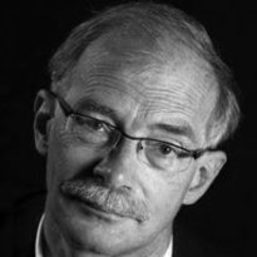
Discussion on concept of “gender neutral” has yet to get underway
Last week, the long-awaited report of the Stolker Committee was released that was supposed to bring clarity to the whistleblower issue surrounding ISW teacher Laurens Buijs. Professor of computer science Jan Bergstra, who worked with Buijs in recent months on a series of scholarly articles on gender, is critical of the Committee’s failure to adequately address Buijs’ arguments in terms of content.
Over the past few days, I have been reading the “Powerful and Vulnerable” report that the Stolker Committee released last week. I have spent the past few months with whistleblower Laurens Buijs (referred to as “Notifier” in the report) and have written with him about gender theory, a very intriguing subject with strong literature and formidable social importance, a subject, moreover, in which there is still much to do and which I can recommend to everyone. But the report that the Committee issued in response to Buijs’ January 18th article in Folia on gender theory and wokeness is subject to some criticism.
Mengele
I gather from the report that it was nevertheless difficult not to treat this whistleblower report like an “ordinary” complaint. For example, I fail to see what the comments in the report about the “Notifier’s” Facebook post that mentions the name of the concentration camp doctor Josef Mengele have to do with such a report. Such a Facebook post is completely out of place but has little to do with a whistleblower report. The Facebook post should have had disciplinary consequences for Buijs but did not. The Stolker Committee rightly draws attention to the fact that the informal handling of that issue is in itself a deficiency in the enforcement of standards within the Faculty of Social and Behavioral Sciences, to which ISW belongs. The handling of the whistleblower’s report took on the character of a complaint handling with the outcome being “the Notifier brought it upon himself.”
Boundaries
Although the Committee’s report provides useful insights about academic freedom in general, those insights have, on the face of it, more implications for dealing with the fossil fuel industry than for dealing with the topics Buijs worked on and wrote about. It would have been important to provide a sharper delineation of where the boundaries regarding the debate on gender theory lie at the UvA. This would have been necessary as some students and staff members felt that Buijs crossed a relevant boundary in his article in Folia.
Such a demarcation was also the subject of debate concerning Buijs’ original research topic, gay studies, and more specifically concerning the potentially problematic attitudes of some of the Amsterdam population toward people whose actions or views deviate from the heteronormative patterns and beliefs that are sometimes still strongly held there. If it is not known where the boundaries of the acceptable lie, it is also difficult to judge at what point they are crossed. I believe that the report concerning the definition of the boundaries of academic freedom, in this case, gender theory, is inadequate. A general text on academic freedom is no substitute for an adequate assessment of concrete cases.
Isolation
The report itself provides an example of the issue at hand, namely the institutionally legitimized curtailment of academic freedom. It states that after the improper actions of “the students” ISW, who posted a trigger warning on Instagram about Buijs in response to his article in Folia until they realized that their actions were undesirable, and subsequently “corrected” their actions in a petition, they did not actually change anything.
That petition states that “A scientific debate about the validity of non-binarity is dismissive and, most importantly, harmful.” This wording, in my opinion, contains a desire - or even a demand - to curtail academic freedom and thus crosses a line. Where else within the UvA than in the context of ISW should such a debate on the concept of gender be held? Or would it be preferable to refer to computer science for a debate on fundamental social concepts, or leave it to philosophy alone? I believe that the ISW management actively sought to isolate and exclude Laurens Buijs. The fact that Buijs was unable to make that point in court does not mean that it is not valid. The aspect of isolation and exclusion is not sufficiently addressed in the report.
Transinclusive
Mari Mikkola’s contribution on sex and gender in the Stanford Encyclopedia of Philosophy (2022) states that the problems surrounding the questions of “what is a man” and “what is a woman” still raise many question marks. These issues are still so big that the subsequent question of “when is one gender neutral” is still barely the subject of conceptual academic discussion. Buijs and myself have worked hard to bring the state of that discussion into focus. The question of how to design a transinclusive notion of gender is still so large and so little consensus has been reached on it that a systematic discussion of the status of “neutral gender” has hardly begun.
A clear sign of this issue is found in the British journal Mind, in which Elizabeth Barnes shows that self-identification and gender categorization are not necessarily unequivocally the same thing. But this discussion did not end with Barnes’ paper. With a little benevolence, the Committee could at least have acknowledged that Buijs’ observations could spark a discussion within the UvA about these complex questions.
Shock
I think Buijs’ statements in Folia fall under the following view, as formulated by the Committee itself in the report: “We do not, however, place restrictions beforehand on our teachers about what they can speak about or how. They may raise topics or make statements that shock you. As a student, you should understand that this is not done to offend you but to make you think. If you want to object, you are invited to do so openly.” If the Committee agrees with me here, then surely they could have written that, and at least in this case, shown that an attempt to restrict academic freedom has been demonstrated!
The whole matter is lent a high degree of detachment by the fact that Buijs’ articles in Folia and earlier ones on his website, as well as the opinion pieces by Sarah Bracke and Jan Willem Duyvendak that quickly followed in the media, are not part of the consulted sources of the report. There is also no reference to any text containing a definition of “non-binary” nor to any other text on gender theory, which surely should be important for a scientific analysis of the issue. It is as if the details don’t matter. But they do matter!
Flat
I believe it was the task of the Faculty of Society and Behavior to hold a substantive debate regarding Buijs’ unwelcome views on gender theory and that the report did not sufficiently emphasize this fact. For example, Professor Sarah Bracke’s piece in the Groene Amsterdammer shows that there was little or no willingness to do this by her comparison of a critical discussion of the concept of gender to a discussion of whether or not the world is flat. Such a comparison makes it sufficiently clear that it is not considered necessary to have this discussion. Or does Bracke see the need to start a discussion about the Earth’s spherical shape?
The preservation of academic freedom requires not only the formulation of general principles but also concerns the creation of space even in circumstances where forces occur that purposefully seek to prevent such a space from being created. The Committee is not sufficiently mindful of the difficulties that might be involved in resisting such forces.
Jan Bergstra is emeritus professor of computer science at the UvA and former chairman of the UvA Central Works Council.

